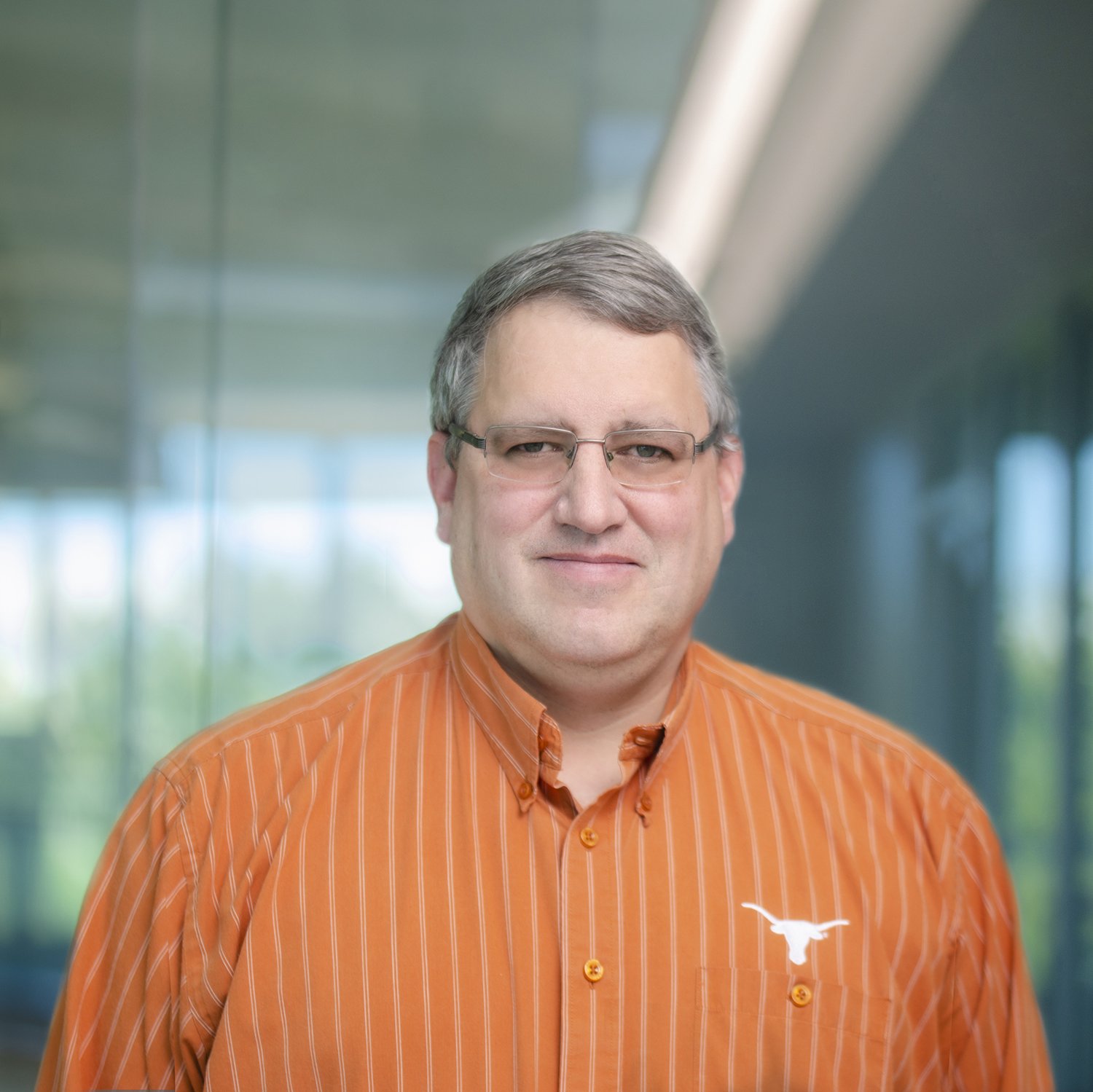People & Programs
Dan Stanzione
A Letter From the Director

2020 was not the year we expected.
It was our first year operating Frontera, the fastest university supercomputer in the world, and our first year planning the Leadership Class Computing Facility. The road ahead was exciting and clear.
Then suddenly we found ourselves in the unique position of actively fighting COVID-19.
Public health crises may not seem like computational challenges, but 2020 has shown just how many aspects of combating a pandemic rely heavily on computation and data.
TACC supercomputers helped model the molecular structure of the virus, providing fundamental insights into its mechanics. We enabled docking computations blending traditional simulations with artificial intelligence to narrow billions of potential molecules to 30 drug candidates. And we partnered with Lauren Ancel Meyer’s epidemiology lab to run daily projections for Austin, the state of Texas, and the nation that are among the most accurate at predicting COVID-related hospitalizations.
To date, TACC has helped more than 50 teams around the world with pandemic-related research at the atomic, genomic, and societal scales. Our support for COVID research will continue growing in the coming year.
This effort has involved the mobilization of TACC’s resources on an unprecedented scale. From March to June, we redirected one-third of our computing resources and the efforts of more than fifty staff to fighting COVID.
Applying advanced computing at scale in response to the pandemic led us to rethink how we can address “Urgent Computing” generally. We’ve incorporated these insights into the next step of TACC’s evolution — the design of the Leadership Class Computing Facility (LCCF).
TACC is planning the LCCF in conjunction with the National Science Foundation to become a future NSF “Major Facility.” If Congress approves funding for this plan, the LCCF will expand TACC and support a system 10 times as capable as Frontera by 2025.
As we plan the LCCF, greater consideration is being given to how we design our systems, staffing, and policies to respond to urgent societal needs — pandemics, hurricanes, earthquakes and more. One thing has become clear though. Virtually everything we run on TACC supercomputers is urgent to someone.
Better cancer treatments are urgent, so we launched a new partnership in computational cancer research with the MD Anderson Cancer Center and UT Austin’s Oden Institute for Computational Engineering and Sciences. Addressing the opioid crisis is urgent, so we launched a new National Institutes of Health-funded project to develop better treatments for acute and chronic pain. Hurricane forecasting is urgent, so we interrupted work on our systems 10 times this summer to produce emergency guidance for storms making landfall. Protecting the environment, improving the food and water supply, developing energy-efficient materials... it’s all urgent.
This year reminded us of the limits of what we know. But it also taught us how urgent it is to make progress in TACC’s mission — using advanced computing to make a better world.

